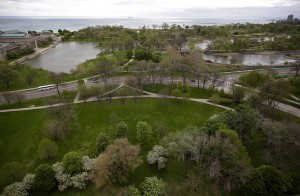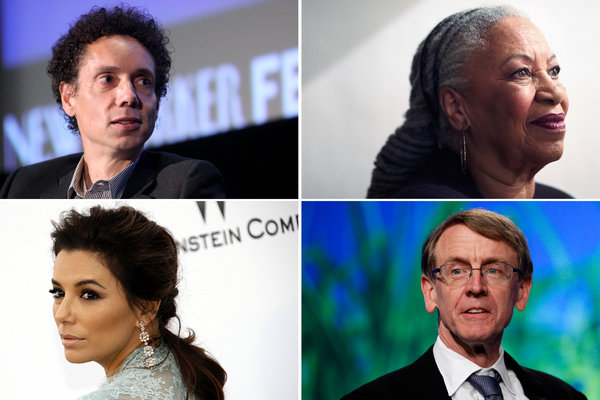By Suzanne M. Price
Question; Should Mr. Obama even have the honor of having a Presidential Library?
Would it not be a constant reminder to “We The People” of his hate for our Great Nation, and his ambitious actions to fundamentally change our country? Not for the better I might add.
There shouldn’t be any public funding for this endeavor.
Please note in this article below, one of his donors, donated to Obama’s Library, an odd $666,666. I can only guess the significance of that amount means. I wonder what this donor knows that we don’t know? Hummm
With High-Profile Help, Obama Plots Life After Presidency
By Michael D. Shear and Gardiner Harris – The New York Times
WASHINGTON — The dinner in the private upstairs dining room of the White House went so late that Reid Hoffman, the LinkedIn billionaire, finally suggested around midnight that President Obama might like to go to bed.
“Feel free to kick us out,” Mr. Hoffman recalled telling the president.
But Mr. Obama was just getting started. “I’ll kick you out when it’s time,” he replied. He then lingered with his wife, Michelle, and their 13 guests — among them the novelist Toni Morrison, the hedge fund manager Marc Lasry and the Silicon Valley venture capitalist John Doerr — well past 2 a.m.
Mr. Obama “seemed incredibly relaxed,” said another guest, the writer Malcolm Gladwell. He recalled how the group, which also included the actress Eva Longoria and Vinod Khosla, a founder of Sun Microsystems, tossed out ideas about what Mr. Obama should do after he leaves the White House.

Jackson Park, on Chicago’s South Side, is one of the proposed locations for Mr. Obama’s presidential library. Credit Joshua Lott for The New York Times
Publicly, Mr. Obama betrays little urgency about his future. Privately, he is preparing for his postpresidency with the same fierce discipline and fund-raising ambition that characterized the 2008 campaign that got him to the White House.
The long-running dinner this past February is part of a methodical effort taking place inside and outside the White House as the president, first lady and a cadre of top aides map out a postpresidential infrastructure and endowment they estimate could cost as much as $1 billion.
The president’s aides did not ask any of the guests for library contributions after the dinner, but a number of those at the table could be donors in the future.
The $1 billion — double what George W. Bush raised for his library and its various programs — would be used for what one adviser called a “digital-first” presidential library loaded with modern technologies, and to establish a foundation with a worldwide reach.
Supporters have urged Mr. Obama to avoid the mistake made by Bill Clinton, whose associates raised just enough money to build his library in Little Rock, Ark., forcing Mr. Clinton to pursue high-dollar donors for years to come.
Including construction costs, Mr. Obama’s associates set a goal of raising at least $800 million — enough money, they say, to avoid never-ending fund-raising.
One top adviser said that $800 million was a floor rather than a ceiling.
So far, Mr. Obama has raised just over $5.4 million from 12 donors, with gifts ranging from $100,000 to $1 million. Michael J. Sacks, a Chicago businessman, gave $666,666.
Fred Eychaner, the founder of Chicago-based Newsweb Corp., which owns community newspapers and radio stations, donated $1 million. Mark T. Gallogly, a private equity executive, and James H. Simons, a technology entrepreneur, each contributed $340,000 to a foundation set up to oversee development of the library.
The real push for donations, foundation officials said, will come after Mr. Obama leaves the White House.
Shailagh Murray, a senior adviser, oversees an effort inside the White House to keep attention on Mr. Obama’s future and to ensure that his final 17 months in office, barring crises, serve as a glide path to his life as an ex-president.
Mr. Obama’s recent visit to a federal prison indicates, advisers say, a likely emphasis on criminal justice reform after he leaves office. His eulogy for one of nine African-Americans killed at a church in Charleston, S.C., is a forerunner, they say, of a focus on race relations. Diplomacy with Iran and Cuba could serve as the foundation for foreign policy work.
“His focus is on finishing this job completely, thoroughly,” said Valerie Jarrett, one of Mr. Obama’s closest confidantes inside the White House.
But officials in the West Wing said the president’s thinking about some of his signature issues — including health care, economic inequality and fighting climate change — also involves considering their incorporation into his life after January 2017.
The heart of the postpresidential planning is Mr. Obama’s own outreach to eclectic, often extraordinarily rich groups of people.
Several aides close to Mr. Obama said his extended conversations over the lengthy dinners — guests say his drink of choice at the gatherings is an extra-dry Grey Goose martini — reminded them of the private consultations Mr. Obama had with donors and business leaders as he sought to build a winning campaign.
The process started as early as the week after Mr. Obama’s re-election in 2012, when the director Steven Spielberg and the actor Daniel Day-Lewis went to a White House screening of the movie “Lincoln.” Mr. Spielberg held the president spellbound, guests said, when he spoke about the use of technology to tell stories.
Mr. Obama has continued those conversations, most recently with Mr. Spielberg and the studio executive Jeffrey Katzenberg over dinner at a Beverly Hills hotel in California in June, according to some of Mr. Obama’s close advisers.
The advisers said Mr. Spielberg was focused on helping to develop a “narrative” for Mr. Obama in the years after he leaves office.
At a dinner this year at Spruce, a restaurant in the Presidio Heights neighborhood of San Francisco, Mr. Obama urged technology executives to focus their philanthropic efforts on helping government become more efficient, giving some the impression that the topic would most likely be a theme of his agenda after leaving office.

Mr. Obama has sought input from an eclectic group including, clockwise from top left, Malcolm Gladwell, Toni Morrison, John Doerr and Eva Longoria. Credit Clockwise from top left: Amy Sussman/Getty Images; Damon Winter/The New York Times; Matt Rourke/Associated Press; Valery Hace/Agence France-Presse — Getty Images
Dinner guests say that postpresidency planning is a big topic of conversation but not the only one. “He loves those sessions,” a top adviser said. “They’re very nourishing to him.”
The next milestone in the library planning will come this month when foundation officials kick off a global search for an architect by releasing a request for proposals to major firms.
The planning for the library is being managed largely out of Chicago, where it will be built.
The board for the library foundation includes Mr. Doerr and Julianna Smoot, Mr. Obama’s chief campaign fund-raiser in 2008 and 2012.
The Chicago library will include an office for the president, but aides said the Obamas could live in Washington while Sasha, 14, their younger daughter, finished high school here.
Several said Mr. Obama, who graduated from Columbia University in 1983, may also have a New York office on Columbia’s campus.
In Chicago, Mr. Nesbitt, the leader of the planning effort, also runs committees overseeing the future library’s architecture, fund-raising and what the organizers call “vision.”
The vision committee, which solicits ideas from supporters around the country about how Mr. Obama should approach his postpresidency, is run by Lynn Taliento, a McKinsey & Company consultant in Washington who met with Mr. Obama in the Oval Office in February 2014, according to White House visitor logs.
The planning is coordinated with the White House by Mr. Obama’s deputy chief of staff, Anita Decker Breckenridge.
Among the debates at some of Mr. Obama’s dinners: How could technology be used to provide global access to his presidential library? How prominent should Mr. Obama seek to be, especially in the first few years?
One top aide said Mr. Obama respected Mr. Bush’s decision to limit his time in public after leaving office, but also admired Mr. Clinton’s aggressive use of the spotlight to press his agenda.
“My sense is that he’s probably a blend of the two,”’ said David Plouffe, one of Mr. Obama’s closest former aides and a member of the library foundation board.
In response to a question from Mr. Doerr at the February White House dinner, the president told the group that he wanted to focus on civic engagement and opportunities for youths, pushing guests for ideas about how to make government work better, Mr. Hoffman recalled in an interview.
The president asked if social networks could improve the way society confronted problems.
In their conversations with Mr. Obama and his advisers, people from Silicon Valley and Hollywood are pressing for a heavy reliance on cutting-edge technology in the library that would help spread the story of Mr. Obama’s presidency across the globe.
Ideally, one adviser said, a person in Kenya could put on a pair of virtual reality goggles and be transported to Mr. Obama’s 2008 speech on race in Philadelphia.
Some discussions at the dinners have focused on the role Mr. Obama might play internationally after the diplomatic opening with Cuba, the nuclear deal with Iran, the confrontations with Russia and the drawdown of American forces in Iraq and Afghanistan.
In an interview on the website Tumblr last year, Mr. Obama was asked what he expected to be doing in 10 years. The president took more than 30 seconds to respond, in a manner that suggested he had not yet settled on a good answer.
“I haven’t projected out 10 years,” he said, offering his standard promise to remain engaged in policy-making until his last days in the Oval Office. “I know what I’ll do right after the next president is inaugurated. I’ll be on a beach somewhere drinking out of a coconut.”
An article on Monday about President Obama’s future after he leaves office described incorrectly the business founded by Fred Eychaner, who donated $1 million to Mr. Obama’s library. Mr. Eychaner founded Newsweb Corp., which owns community newspapers and radio stations; he did not found a Chicago “television empire.”

